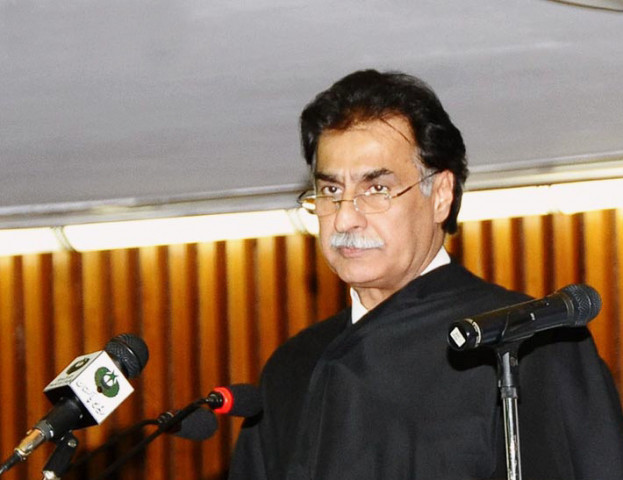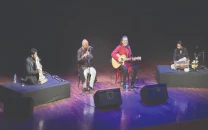Russian plenary: Peace, security are Pakistan’s top priorities, says Ayaz
The speaker urged the international community to intensify efforts for restoring peace in the region

The Speaker reiterated that the government was ready to thwart any conspiracies against CPEC. PHOTO: ONLINE
According to a message received here, he said that Pakistan’s vision for a peaceful neighbourhood is manifested in its efforts for regional cooperation and connectivity.
He said that the country pursued development through connectivity in collaboration with friendly countries, as was evident from CPEC, TAPI and CASA projects.
Highlighting the unresolved nature of Kashmir and Palestine disputes at the UN Security Council, he said that denial of self-determination and human rights abuses will continue to challenge the progress for peace in the region and beyond. Speaking on ‘Regional Security and Counter Terrorism’, Ayaz Sadiq said: “We are confident that Pakistan’s peace and development agenda will promote peace and stability in the region and beyond,” he said.
Referring to Pakistan’s sacrifices in connection with the war on terror, he said that Pakistan paid an extraordinary price for international security and peace, and Pakistan’s efforts had been instrumental in diminishing al-Qaeda’s presence. He said that Pakistan “is a vital partner for fostering peace in Afghanistan through an Afghan-led and Afghan-owned peace and reconciliation process”.
The speaker underscored the need for a collaborative approach to address the menace of terrorism.
Expressing concern over the spike in the number of incidents of Islamophobia, he asserted that the unfair and biased portrayal of Islam and its beliefs was unacceptable.
Highlighting the migration crisis in the Middle East, the speaker urged the international community to intensify efforts for restoring peace in the region and stressed upon the need for humane treatment of refugees and internally-displaced people.
Referring to Pakistan’s advantageous geographic position, untapped potential and willingness for cooperation, he said: “We are determined to realise this enormous potential with the help of our friends and partners.”
Published in The Express Tribune, November 26th, 2016.



















COMMENTS
Comments are moderated and generally will be posted if they are on-topic and not abusive.
For more information, please see our Comments FAQ